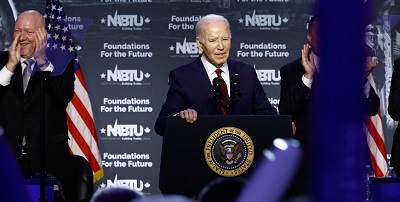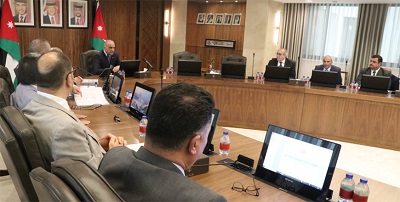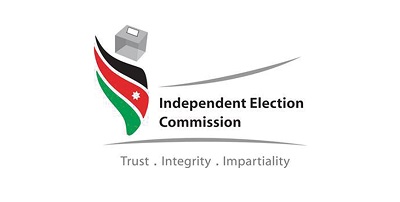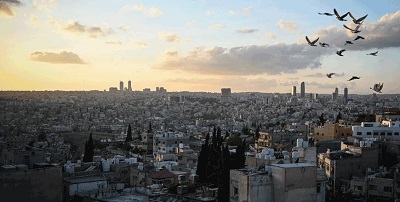Saudi Arabia and Pakistan’s bid to change regional politics - By Ahmed Quraishi, Alarabiya
The visit of Saudi Crown Prince Mohammed bin Salman to Pakistan sets the stage for strategic partnership between two powerhouses of the region and the Muslim world.
The last time these two countries came together, in the 1980s, they changed the face of politics in the Muslim world and globally by leading the campaign to defeat communism in Afghanistan.
Today, Crown Prince Mohammed bin Salman and Prime Minister Imran Khan want to reform the role of Muslims globally focus on regional connectivity and prosperity, and end militant groups that abuse religion.
And this could not come at a more opportune time. A younger generation and new political leaderships are ascending to power in Riyadh and Islamabad.
Officials of the two countries are casting Crown Prince’s visit as something akin to transferring the close political, military and intelligence cooperation to the next generation of Pak-Saudi leaders.
Pakistan virtually abandoned its regional role and withdrew inwards in 1991 after playing a key role with the West in decisively ending the Cold War. Islamabad appeared exhausted of spy games and wars and turned its focus to chaotic domestic politics and struggled with the aftereffects of “Afghan jihad” next door.
Now, with the change of guard in Islamabad last year, and after the most important elections in three decades, Pakistanis are ready to embrace their country’s regional and international roles again under Prime Minister Khan. Saudi officials recognize Mr. Khan’s agenda and appreciate Islamabad's strategic potential.
Riyadh shows willingness to be associated with Pakistan's regional and international vision of prosperity, regional connectivity and end to conflicts.
In return, Islamabad wants to hitch its wagon to Saudi Arabia. The Saudi Vision 2030, Riyadh’s leading role in the Islamic world in combating extremism, as well as their role in encouraging younger Muslims to contribute to the global civilization and not be a passive consumer, all these ideas excite Pakistani leaders and public. Pakistan wants to join this grand vision and support it.
Pakistan has a role in the stability and security of the Arab Gulf region. This partially explains why allies like Saudi Arabia and the United Arab Emirates are eager to help Islamabad overcome economic and political troubles.
Stability of Saudi Arabia and the Gulf impacts the largest Pakistani diaspora in the world, the biggest foreign remittances to Pakistan, and Islamabad’s ability to get its energy supplies on easy terms when necessary. Islamabad is committed to its national interests in the Gulf region.
Here, Iran’s troubles and problems across the region represent both a challenge and a headache for Pakistan. Iranian involvement in multiple conflicts in the region, and its meddling in states that have close ties to Islamabad, complicates matters for Pakistani diplomacy and impacts Pakistani interests.
As a neighboring Muslim country, Islamabad wants good relations with Tehran but wants peaceful end to Iranian involvement in multiple regional confrontations.
Having said this, Pakistanis are not ready to accept Iranian pressure when it comes to Islamabad’s interests in Gulf and the Middle East. Pakistan has carefully cultivated relations across this vital region and will not abandon those interests under Iranian pressure.
Pakistan's relations with Saudi Arabia and GCC are de-linked and de-hyphenated from its relations with Iran. Both are not mutually exclusive and are not a zero-sum game. Regional ties, Islamabad feels, should be based on respect and non-interference in national sovereignty.
Pakistan supports the legitimate government in Yemen, opposes the rule of militants and armed groups, and the malign foreign backing to armed groups that leads to chaos. Pakistan is watching Yemen war closely because it impacts Pakistani interests in the Gulf.
Islamabad also supports the vision of Saudi Arabia and the 41-member Islamic Military Counter Terrorism Coalition (IMCTC).
Saudi and Pakistani officials agree on the idea of eliminating extremist, sectarian, terrorist ideologies and groups, and support IMCTC’s goal of harmonizing Muslims across all sects through tolerance and acceptance. If successful, this could end a major underlying cause of strife in the region.
Today, Pakistan and Saudi Arabia are part of a vision that pushes for regional harmony, conflict resolution, peace, tolerance, acceptance, progress and prosperity. It is an important, ambitious agenda and one that should attract wider support across the region and the world.
Pakistan and Saudi Arabia defined the 20th century by supporting freedom and defeating tyranny in Afghanistan, as part of a global coalition. Today, the two return to Afghanistan to end one of the longest wars. It’s a vision for a 21st century of regional connectivity, global integration, and end to militant ideologies.
The West and the emerging economies of the world should support this project that Pakistan and Saudi Arabia have launched.
Latest News
 'Sinwar Above Ground': Hamas official's revelation shocks Israeli Occupation
'Sinwar Above Ground': Hamas official's revelation shocks Israeli Occupation US president signs bill to provide new aid for Ukraine
US president signs bill to provide new aid for Ukraine Prime minister directs government to support IEC ahead of upcoming elections
Prime minister directs government to support IEC ahead of upcoming elections Parliamentary elections for 20th Lower House to be held on September 10 – IEC
Parliamentary elections for 20th Lower House to be held on September 10 – IEC Amman Chamber of Commerce says GDP grows by 4.4% in 2023
Amman Chamber of Commerce says GDP grows by 4.4% in 2023
Most Read Articles
- More than 100 arrested at US university pro-Palestinian protests
- King, French president discuss regional developments
- Senior Hamas official says movement is “awaiting response” in ceasefire negotiations
- Irish foreign minister visits Palestinian refugee camp in Amman, vows support to UNRWA
- Jordan remembers Queen Zein
- Ahead of feared Rafah invasion, Palestinians mourn bombardment dead
- US says downed Houthi anti-ship missile, four drones
- JAF carries out six more airdrops of aid into Gaza
- Cassation Court upholds over 3-year sentence for drug dealer
- Hizbollah denies Israel claim it killed half of commanders in south